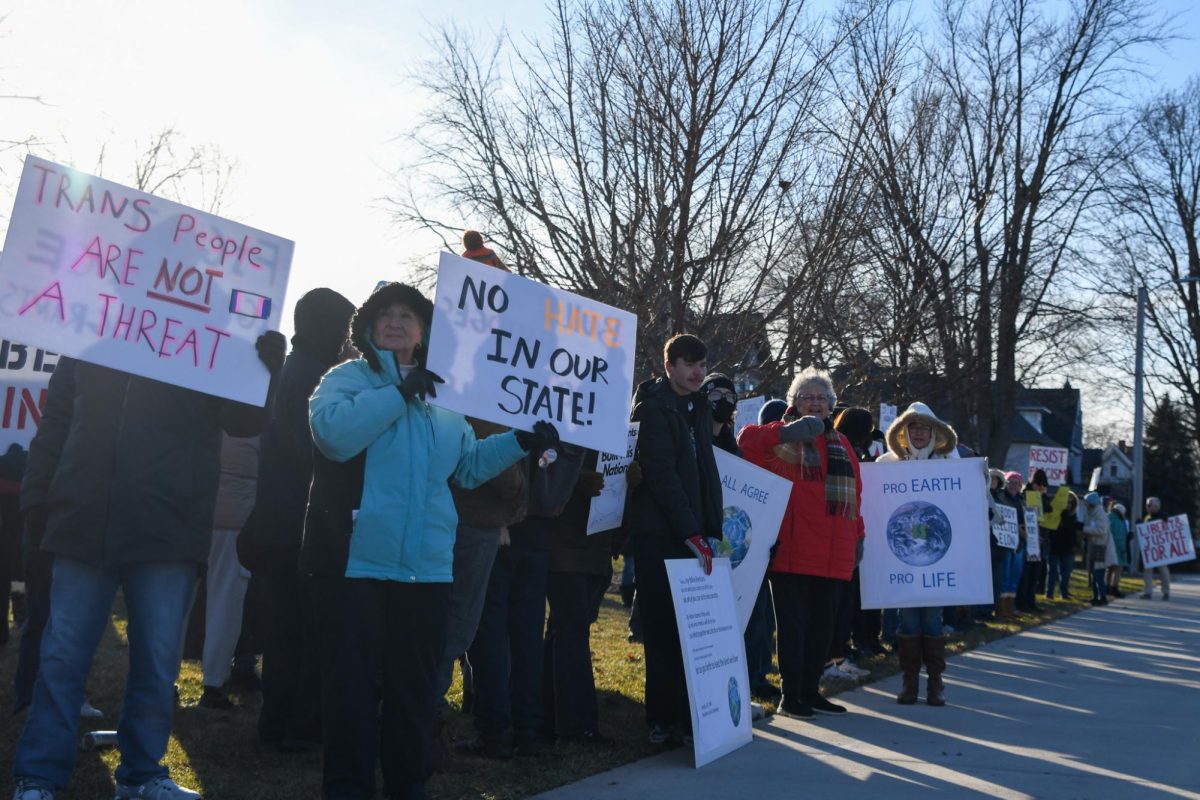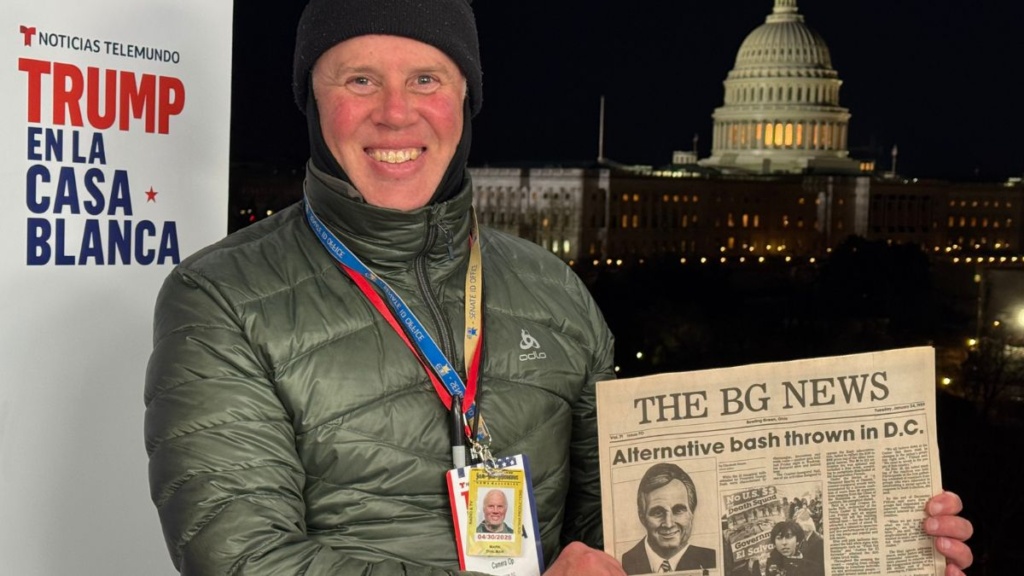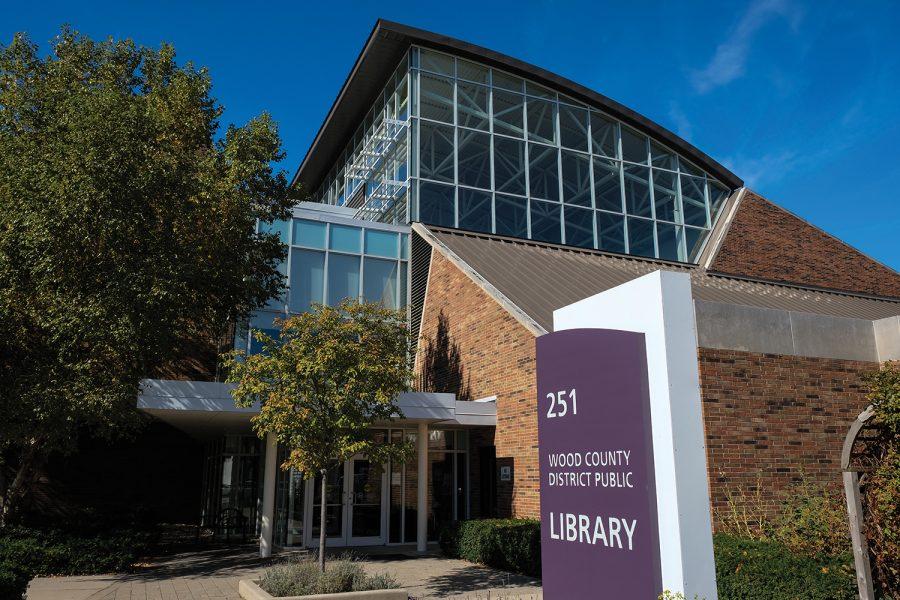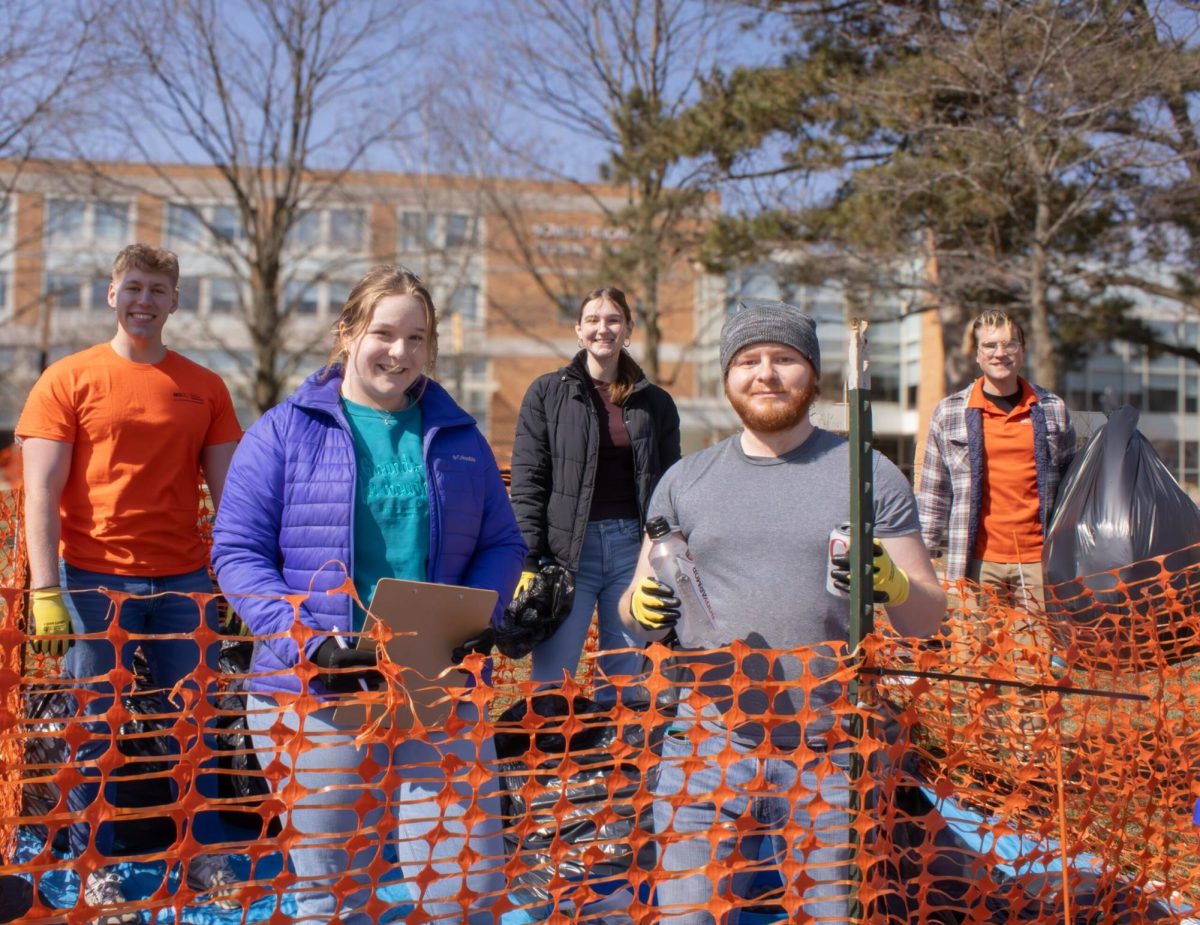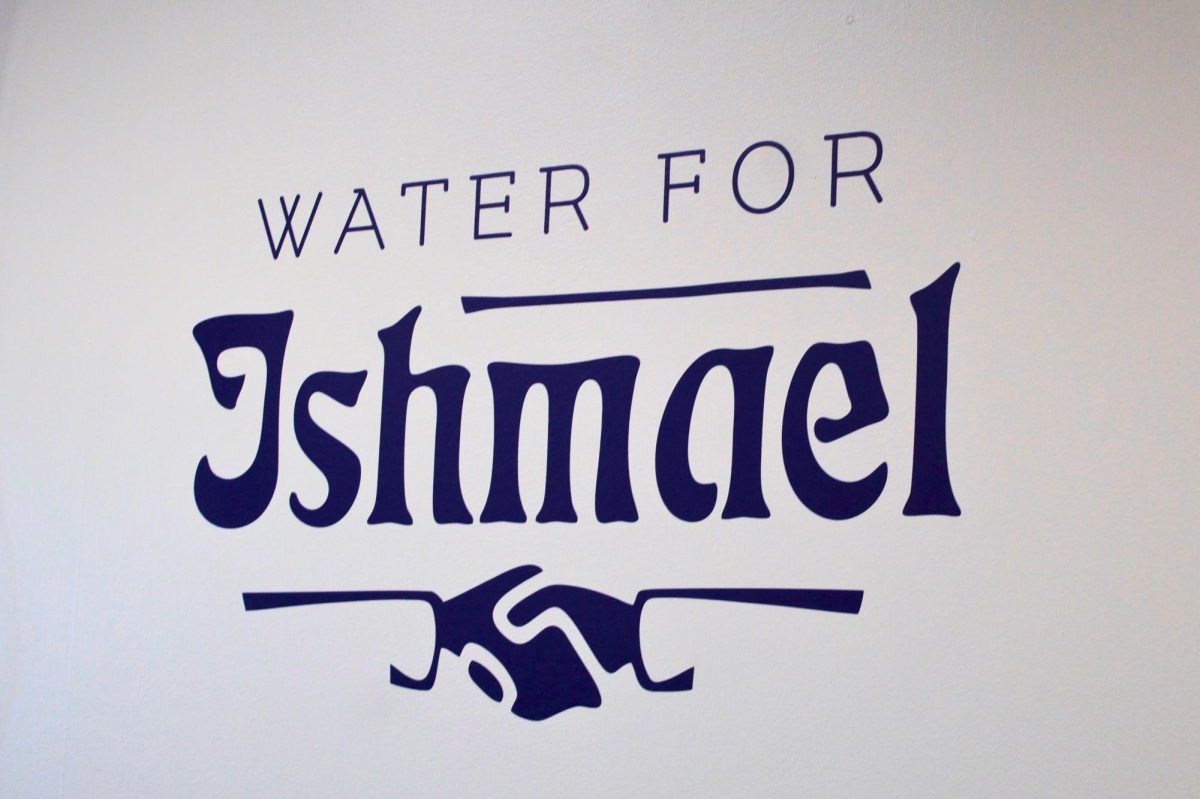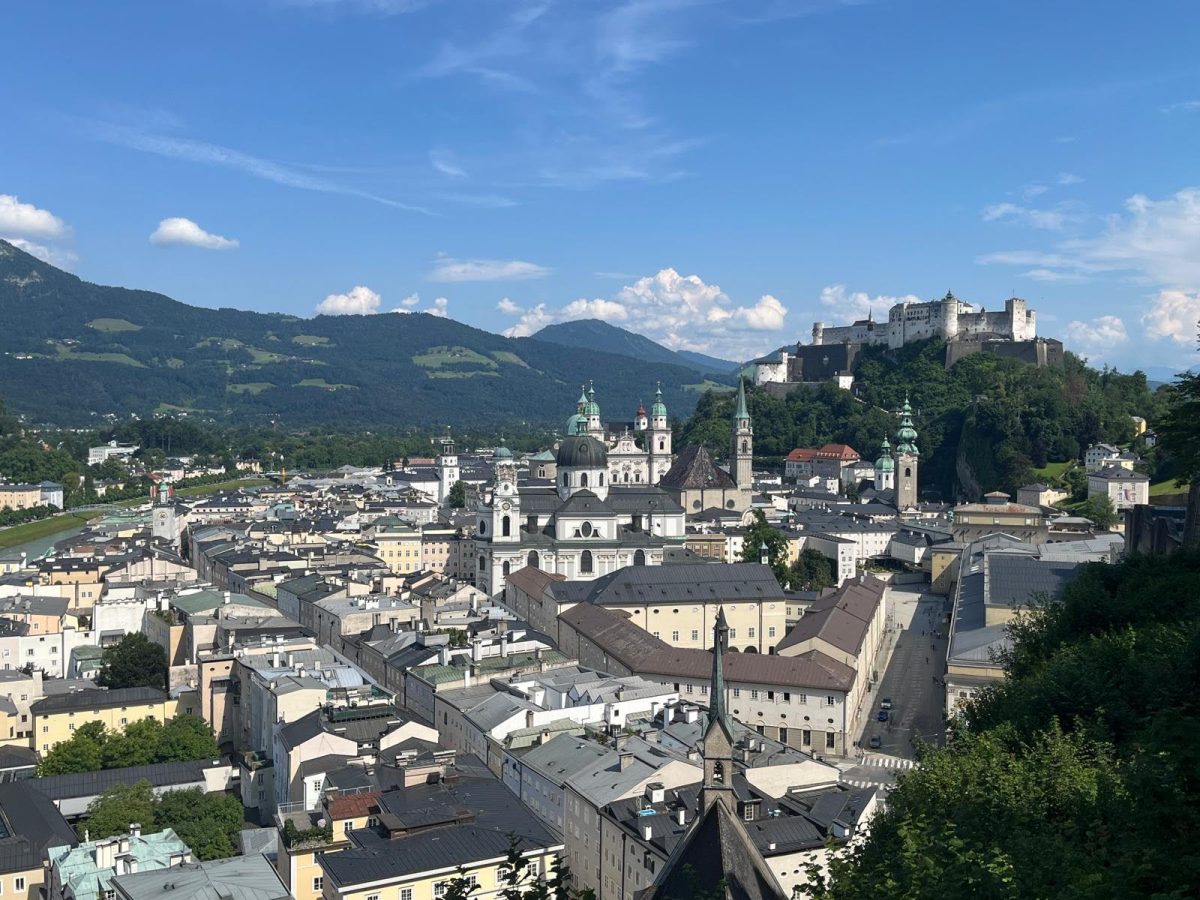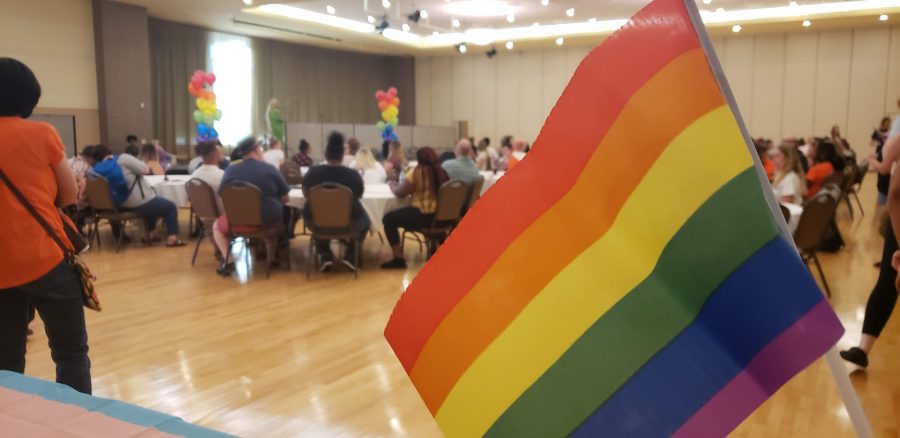Eighteen months into the current Israel-Gaza war, the humanitarian crisis continues to escalate.
Palestinians in Gaza have been under siege by the Israel Defense Forces (IDF) since Hamas’ Oct. 7, 2023, attack on Israel, which killed about 1,200 people and took more than 250 hostages. In the months since, ongoing IDF attacks on Gaza have killed more than 50,000 Palestinians and injured over 115,000.
The United Nations said Israel’s response is “disproportionate and indiscriminate.”
Psychology professor Eric Dubow at Bowling Green State University was involved in a long-term study from 2007 to 2019 in Israel and Palestine’s West Bank and Gaza that examined the psychological effects of ethnic political violence on families.
His team found that children exposed to such violence are more likely to struggle with trauma. The effects can last for years, often appearing as anxiety, depression and behavior issues.
“These effects occur for both Palestinian and Israeli children who are exposed to violence,” Dubow said.
As part of the study, local interviewers met with over 1,500 children yearly for three years, then followed up four years later to see how the violence had impacted the families over time.
“We found that the more exposure to ethnic political violence, the more negative outcomes there are. And that’s not just initially, but it’s also years down the down the line,” Dubow said.
The psychology professor said the team saw differences in the amount of violence each group experienced and the emotional toll it took.
“All throughout our project, we’re assessing exposure to ethnic political violence, and it’s much, much higher among the Palestinian sample than it is among the Israeli sample,” Dubow said.
According to the psychology professor, greater exposure to ethnic political violence led to increased trauma.
“We are pretty certain that that’s why outcomes (for post-traumatic stress and aggression) are higher among the Palestinian sample than among the Israeli sample, because the Palestinian sample is exposed at a lot higher level to ethnic political violence than the Israeli’s are,” Dubow said.
He is currently working with University of Notre Dame professors Laura Miller-Graff and Mark Cummings to implement the “Promoting Positive Family Futures” intervention program in the West Bank.
“It’s a parent-adolescent communication kind of an intervention… to communicate more effectively as a family, and to reduce any adolescent problem behavior,” Dubow said.
More than 1 million children in Gaza need mental health and psychosocial support.
“The focus is really on basic needs, especially housing,” Dubow said. “Clean water, personal safety, physical safety. So, when do psychological needs come into play? It’s later- but right now, those basic needs have to be met.”
For some Palestinians in the U.S., the impact of the war is deeply felt.
Walaa Kanan, a licensed social worker and board member of the American Muslims for Palestine (AMP) Toledo chapter, has led grassroots mobilization efforts one to four times a week since October 2023.
“This past year and a half has been a lot on everyone. Sitting with a lot of grief,” Kanan said.
The Palestinian American said there are people who don’t see Palestinians in Gaza as humans, but as statistics.
“I think there’s absolutely a lack of understanding that the people being murdered are people,” Kanan said. “When we hear, ‘Oh, 60 people were killed,’ picture a classroom. Really think about what 20 people is- like, ‘Oh, the staff meeting I went to this evening.’ Okay. Imagine all those people dead.”
Kanan said many people have become desensitized to the violence and death in Gaza.
“Just trying to wrap your head around the fact that that many people can just exist in a space and, in a matter of seconds, literally all be dead,” she said. “I think that because we’ve been so desensitized to it, it becomes this thing that people think is normal.”
The Toledo local often takes part in AMP organizing, including protests, lobbying, educational events, and community-building efforts.
“It’s been a lot. It’s been negative and tragic, but also positive, because it’s people coming together, trying to do something,” Kanan said.
Beyond northwest Ohio, pro-Palestine activists filled the streets of Washington, D.C., on Saturday, demanding an end to U.S. support for Israel.
They protested outside ICE headquarters following recent arrests and planned deportations of nonresidents and U.S. permanent residents with histories of pro-Palestine activism, including Mahmoud Khalil, who helped mediate the 2024 Columbia University campus occupations.
Although Khalil holds a green card and is married to a U.S. citizen, the Trump administration detained him under the Immigration and Nationality Act of 1952.
“The secretary of state has the right to revoke a green card or visa for individuals who oppose foreign policy or national security interests,” White House press secretary Karoline Leavitt said in March.
Under Secretary of State Marco Rubio, the State Department has already revoked more than 340 visas for students, faculty, and researchers, according to BG Falcon Media affiliate CNN.
For Kanan, censorship in the U.S. feels minor compared to what Palestinians in Gaza are going through.
Still, her trust in people has shifted over the past 18 months, she said.
“I find myself sitting with a lot of distrust of people in the community around me,” Kanan said. “I used to be bubbly -I still try to be- but now it’s like, ‘Wow, the world is really letting this happen to our people.’”
For more information on the ongoing Israel-Gaza war, visit the United Nations’ official reports or the OCHA’s impact snapshots.





